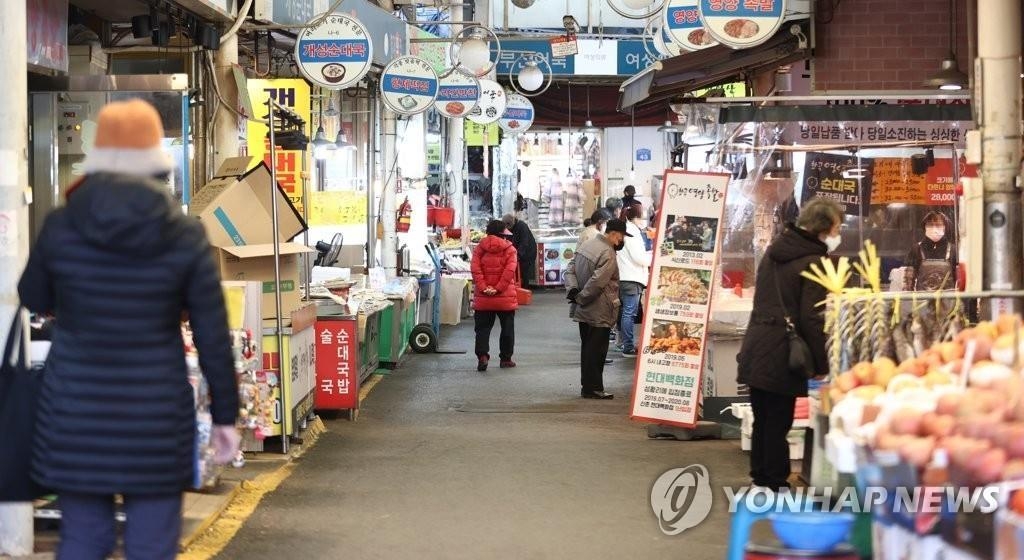SEOUL, Dec. (Yonhap) – Consumer prices in South Korea rose less than 1% for the third month in a row in December, data from Statistics Korea (KOSTAT) showed on Thursday, indicating weak inflationary pressure in Asia’s fourth-largest economy against the backdrop of the novel coronavirus pandemic (Covid-19).
—
The consumer price index rose 0.5% year on year in December, a slowdown from the 0.6% increase recorded the previous month, according to the data.
—
This is the third month in a row that the rate of growth of consumer prices remains between 0 and 1% on an annual basis.
—
Compared to the previous month, the country’s consumer price inflation rose 0.2% last month after falling 0.1% month on month in November.
—
For the year as a whole, consumer prices rose 0.5%. This is the first time that annual inflation has fallen below 1% for the second year in a row since the statistics agency began compiling relevant data in 1965.
—
The country’s inflationary pressure has remained low this year, mainly due to low oil costs after the outbreak of the coronavirus.
—
This year, agricultural commodity prices have jumped due to the impacts of typhoons and the summer monsoon.
—
The prices of agricultural, livestock and fishing products jumped 6.7% in 2020.
—
However, inflationary pressure has stabilized against a backdrop where low crude costs have reduced the prices of petroleum products and stricter social distancing measures have restrained the rise in prices of services, according to KOSTAT.
—
Prices for petroleum products fell 7.3% this year, while expenses for personal services, including meals out and entertainment, rose 1.2%, the weakest growth in eight years .
—
Limited inflation should allow the Bank of Korea (BOK) to maintain an accommodative monetary policy.
—
The central bank froze its key interest rate at an all-time low of 0.5% in November amid mounting economic uncertainties due to the Covid-19 pandemic.
—
The BOK has revised its inflation forecast for 2020 upwards to 0.5%, after its previous estimate of 0.4%, citing an economic recovery and rising oil prices. She forecasts that inflation will rise by 1% next year.
—

